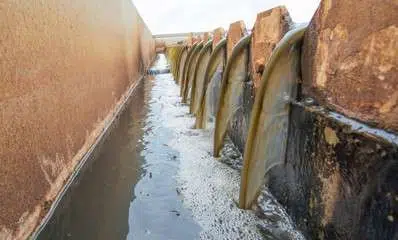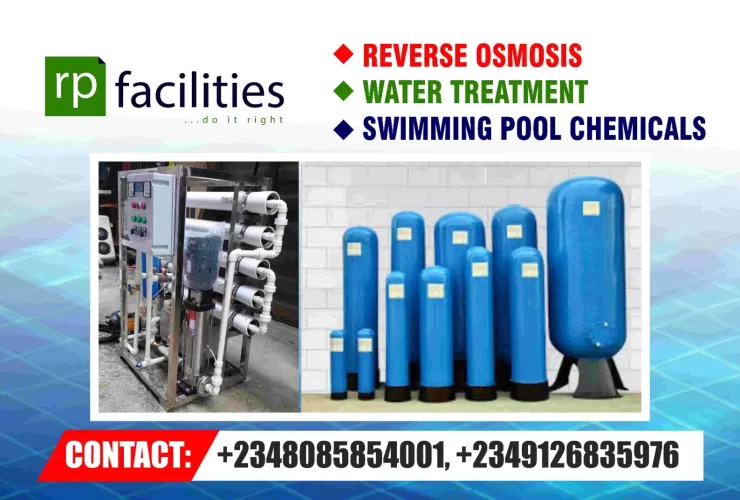Water and Wastewater Management Company in Lagos
Lagos, Nigeria, is a bustling metropolis that is no stranger to public health challenges caused by lack of Water and Wastewater Management. As one of the fastest-growing cities in Africa, with a population of over 20 million, the city has long grappled with issues surrounding water quality and sanitation. One of the most pressing concerns has been the management of cholera, a highly contagious and potentially deadly waterborne disease.
The Cholera Crisis in Lagos
Cholera, a highly contagious and potentially deadly waterborne disease, has long been a thorn in the side of Lagos’ public health authorities. Outbreaks of this disease can be particularly problematic in densely populated urban areas, where access to clean water and adequate sanitation infrastructure is often limited.
In recent years, Lagos has experienced several cholera outbreaks, with the most recent one occurring in 2022. These outbreaks have highlighted the urgent need for a comprehensive and coordinated approach to water and wastewater management in the city and especially in high water table areas like Lekki, Victoria Island, Ketu, Ajegunle, Apapa, etc.
Water Treatment Process
Water treatment is a technological, mechanical, chemical, and biological process to improve the unsatisfactory physical, chemical, and bacteriological properties of water.
The goal is to make the water more suitable for its intended use, such as drinking, industrial applications, or other purposes.
Pathogens in Water:
Pathogens are disease-causing microorganisms that can enter water through feces and urine from humans and animals. The main types of pathogens found in water include:
- Protozoa (single-cell animals): Can cause diarrhea and stomach complaints.
- Bacteria (e.g., E. coli or coliforms): Measured in colony forming units (CFU) per volume. They can cause typhoid fever and cholera
- Viruses (the smallest): Measured in plaque forming units (PFU) per volume, they can cause hepatitis and polio
These pathogens are not naturally present in water but can contaminate it through various sources, making the water unsafe for its intended use.
The water treatment process aims to remove or inactivate these pathogens to ensure the safety of the water for its intended use. Proper water treatment is crucial for protecting public health and the environment.
Our water treatment plants (WTP) are designed to remove contaminants and ensure the delivery of safe, potable water to households and businesses across Lagos. By adhering to rigorous quality standards and utilizing the latest water treatment technologies, we are able to significantly reduce the risk of waterborne diseases, such as cholera.
Sewage Treatment or Wastewater Treatment Process
Equally important is the proper treatment and disposal of wastewater. Our wastewater treatment plants (WWTP) are equipped to remove harmful pathogens, heavy metals, and other pollutants from the water before it is discharged back into the environment. This not only helps to prevent the spread of cholera but also protects the overall ecosystem and public health.
Sewage treatment is an essential process for reducing the organic matter, typically measured as biological oxygen demand (BOD), from municipal wastewater. This is achieved through the use of both aerobic and anaerobic processes, which leverage the metabolic activities of various microorganisms.
In aerobic sewage treatment, oxygen-utilizing bacteria and other microbes break down organic compounds, converting them into carbon dioxide and water. Conversely, anaerobic treatment relies on microorganisms that can thrive in the absence of oxygen, using alternative electron acceptors to metabolize the organic matter and produce methane as a byproduct.
The organisms involved in these sewage treatment processes are highly sensitive to the presence of toxic materials, such as heavy metals, pesticides, or industrial chemicals. While these toxic substances are not typically found in high concentrations in municipal sewage, their introduction can disrupt the delicate microbial balance and compromise the efficiency of the treatment system.
Maintaining a well-monitored and controlled treatment environment is crucial to ensure the continuous and effective reduction of organic matter from sewage, thereby protecting the receiving water bodies and the overall environmental health. The ability to minimize the presence of toxic materials in the wastewater stream is a key factor in the success of any sewage treatment operation.
Community Engagement and Education
Recognizing that sustainable change requires the active involvement of the community, RP Facilities Ltd has implemented comprehensive public awareness and education campaigns. These initiatives focus on promoting good hygiene practices, proper waste disposal, and the importance of accessing clean water sources to prevent the spread of cholera and other waterborne diseases.
Recognizing the critical importance of addressing this issue, RP Facilities Ltd, a leading water, wastewater, and facility management company in Lagos, has taken on the mantle of spearheading efforts to improve public health and combat cholera in the city. Through their innovative approaches to water and wastewater treatment.




Permalink